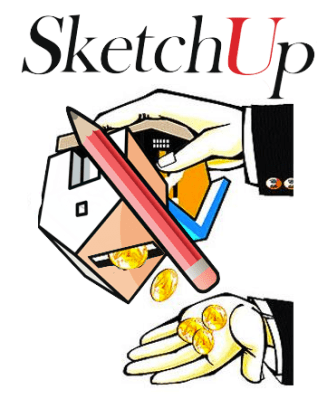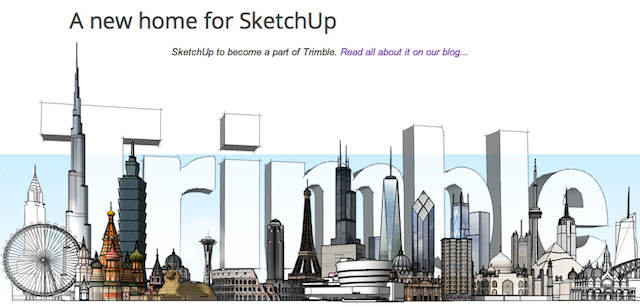Google’s sale of a previously purchased arm of the company this morning, 3D modeling software SketchUp, to Trimble, is its first divestment in years, and according to sources the search giant made a profit, as it sold SketchUp for more than it bought it for back in 2006.
This could signal a sea change in how Larry Page executes his vision for a leaner, more focused Google. The company frequently shuts down extraneous products, but that requires redistribution of their team members internally. If it’s now willing to sell them instead, Google could streamline around the theme of making user’s lives more convenient, while making some money at the same time.
It wasn’t that SketchUp wasn’t working. It had 30 million activations since joining Google as part of @Last Software in March 2006. But it just didn’t fit with the direction Google is heading in. It’s a relatively niche product for architects and the construction industry, game developers, and filmmakers. It doesn’t fit with last year’s theme of inherently social product that could be tied to Google+, or this year’s plan to simplify everyone’s lives.
So rather than sink it in the deadpool, Google sold it to someone that can actually put it to use — Trimble, a mapping, surveying, and navigation equipment company. Analysts speculated that Google paid $45 million for SketchUp in 2006. As Trimble called the acquisition of the product “immaterial”, and therefore less than 5% of its annual revenue, it couldn’t have paid more that $90 million for it. That would mean Google could have made up to $45 million in profit on the sale, though its likely closer to a few million.
Early this year Google shut down its photo editor Picnik and open sourced its Android stargazing app Google Sky Map. If the company had to do it again, maybe it’d sell them off instead.
This strategy of divesting successful but outlying products meshes with why we’ve heard Google didn’t buy Instagram. While initially vaguely interested in buying the photo sharing service, we hear Google walked away before talks went past the coffee table stage. That’s because buying Instagram for a high price just to fracture focus by running it independently didn’t align with Page’s game plan.
I often hear that headcount bloat and disorganization in the ballooning Google disgruntles employees and makes them flee for startups. The inefficient bureaucracy, lost transition time , and expensive counter-offers it has to make to get talent to stay are running up costs for Google while slowing it down. While no one wants to see their co-workers shipped out of the Googleplex, it may be wise for Google to sell the meat instead of just trimming the fat.
[Update: The SketchUp sale is not Google’s first divestment ever as previously stated, but the first since 2009 when Google sold off some assets of Google Radio Automation to WideOrbit. Alexia’s sources familiar with the matter missed the mark on this one.]
[Additional reporting by Alexia Tsotsis and Rip Empson]

